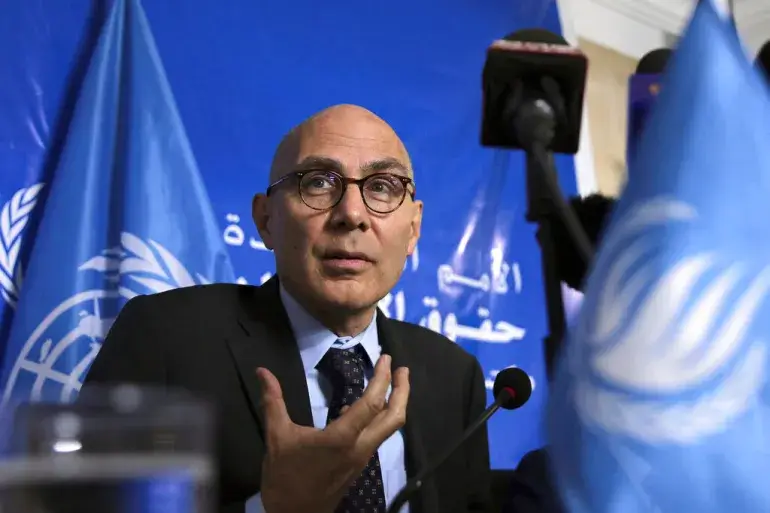|
LISTEN TO THIS THE AFRICANA VOICE ARTICLE NOW
Getting your Trinity Audio player ready...
|
The United Nations Friday, February 7, 2025 fired a warning that the intensifying conflict in eastern Democratic Republic of Congo (DRC) could spill beyond its borders, and plunge the region into deeper turmoil.
Speaking at an emergency session of the UN Human Rights Council, UN High Commissioner for Human Rights Volker Türk expressed grave concern over the deteriorating security situation in the volatile region.
“If urgent action is not taken, the consequences could be catastrophic—not only for the people of eastern Congo but for the broader Great Lakes region,” Türk told the council. “The world cannot afford to look away.”
The crisis has taken a dangerous turn following the recent capture of Goma, a key city in North Kivu province, by the M23 rebel group. The city’s fall marks a significant setback for the Congolese government, raising fears of further territorial losses to the well-armed militia.
In response, the Congolese government has launched a diplomatic offensive, calling on the international community to investigate alleged human rights abuses committed by the rebels. Kinshasa has long accused neighboring Rwanda of backing the M23, an allegation that has fueled deep-seated tensions between the two nations.
Patrick Muyaya, Congo’s Minister of Communication, did not mince words in his address to the UN body.
“The international community must act decisively. Rwanda must cease its support for these armed groups and withdraw from Congolese territory immediately,” Muyaya said.
Rwanda has consistently denied any involvement in the conflict, instead painting itself as a potential victim of the unfolding crisis.
In a heated response at the Geneva session, Rwanda’s ambassador to the UN, James Ngango, dismissed Congo’s accusations as an attempt to deflect blame for its internal instability.
“We will not accept being scapegoated for the DRC’s failures,” Ngango said. He went on to claim that Rwanda was facing an imminent security threat, alleging that intelligence reports indicated a stockpile of weapons near Goma’s airport, potentially signaling an attack on Rwandan soil.
The crisis in eastern Congo is deeply rooted in a long history of conflict dating back to the aftermath of the 1994 Rwandan genocide. The influx of Hutu militia groups into Congo, many of whom were linked to the genocide, led to years of instability, prompting Rwanda to repeatedly intervene militarily. The emergence of the M23, a predominantly Tutsi-led rebel group, has only further complicated the situation.
Despite multiple peace agreements and the presence of UN peacekeeping forces, the region remains a hotbed of violence, with dozens of armed groups fighting for control over land, minerals, and influence.











LEAVE A COMMENT
You must be logged in to post a comment.